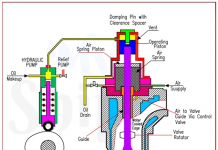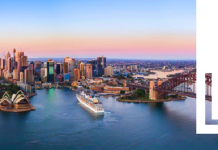
IMO’s main responsibility is to make shipping of all types safer, including tankers. The actions included in the numerous safety conventions & suggestions utilize to these as well as other ships – & the safer a ship is, the less likely it is to be involved in an accident.
SOLAS
The International Convention for the Safety of Life at Sea (SOLAS), 1974 includes special requirements for tankers. Fire safety facilities, e.g., are much more strict for tankers than the ordinary dry cargo ships, since the danger of fire on board the ships carrying oil & refined products is much more.
Inert gas systems
It is not only the fire which is hazardous – in certain cases a single spark can cause an accident, for even tanks which do not contain oil are filled with flammable gas which can blow up except if proper methods are followed.
The standard method is to fill these tanks with inert gas(IG) from the ship’s boiler flue: it is cleaned & then pumped inside the empty tanks, or into the spaces left above the oil in the loaded tanks. An inert gas(IG) system is needed on all new tankers & most existing tankers of 20,000 dwt(Dead Weight Tonnage) & above.
Equipment duplication
IMO has developed several methods over the years which are developed to assure that, in the event of mechanical failure, the ship can still be under control. SOLAS makes it compulsory for main parts of the steering gear of tankers to be duplicated.
In terms of other ships, much of the navigational equipment of tankers should be duplicated.
Mandatory towing arrangements
Since 1st Jan. 1996 all new tankers of 20,000 DWT & above have had to be installed with an emergency towing arrangement installed at both end of the ship. Existing ships had to be installed with such design not later than 1st Jan. 1999.
MARPOL 73/78 – Reducing the consequences of accidents
The International Convention for the Prevention of Pollution by the Ships (MARPOL 73/78) covers regulations concerning subdivision & stability which are constructed to assure that, in any loading conditions, the ship can survive after being involved in a collision or stranding.
Protective location of segregated ballast tanks
The 1978 MARPOL Protocol developed the idea known as the protective location of the segregated ballast tanks. This means that the ballast tanks are situated where the effect of the collision or grounding is likely to be greatest. In this manner the amount of cargo leaked after such an accident will be greatly decreased.
The 1983 MARPOL amendments restrict the carriage of oil in the forepeak tank – the ship’s most unprotected point in the event of a collision.
Double hulls
In the year 1992 MARPOL was amended to make it obligatory for tankers of 5,000 DWT & more booked after 6 July 1993 to be installed with double hulls, or an substitute design authorized by the IMO. All tankers should have to be changed when they reached a certain age (up to 30 years old). This procedure was accepted to be phased in over a number of years because the shipyard capacity is limited & it should not possible to change all the single hulled tankers to double hulls without causing huge disturbance to world trade & industry.
Accelerated phase-out for single-hull tankers
Under this updated regulation 13G of Annex I of MARPOL, the final phasing out date for Category 1 tankers was 2005. The final phasing out date for category 2 & 3 tankers was brought ahead to 2010, from 2015.
Condition Assessment Scheme (CAS)
Under the updated regulation, the Condition Assessment Scheme (CAS) is appropriate to all single hull tankers of 15 years, or older.
Carriage of heavy grade oil
A new MARPOL regulation 13G on the prevention of oil pollution from the oil tankers when carrying heavy grade oil (HGO) restricts the carriage of HGO in single hull tankers of 5,000 tons DWT & above after the date of enforcement of the regulation (5 April 2005), & in single-hull oil tankers of 600 tons DWT & above but less than(<) 5,000 tons DWT, not later than the anniversary of their delivery date in 2008.
Enhanced inspections
Since the year 1995 all tankers & bulk carriers aged 5 years & more have been subject to a specially enhanced inspection programme which is considered to assure that any inadequacy- such as corrosion or wear & tear resulting from the age or neglect – are detected.
Mandatory ship reporting
Since 1st Jan. 1996, authorities have been able to suggest to IMO the introduction of obligatory ship reporting systems in areas where there are special environmental or navigational disturbance.
COLREGS
The International Regulations for Prevention of Collisions at the Sea, 1972 (COLREGS) comprise special methods for ships such as tankers which, by nature of their draught, have a decreased capability to manoeuvre.
STCW Convention
The International Convention on the Standards of Training, Certification & Watchkeeping for the Seafarers, 1978, as modified in the year 1995 (STCW) comprise several needs aimed specifically at those working on tankers.
ISM Code
The International Safety Management (ISM) Code was accepted in the year 1994 & became obligatory for the tankers in 1998. The ISM Code forces strict standards on the shipping companies.



